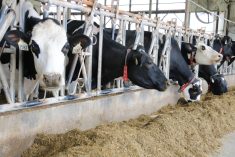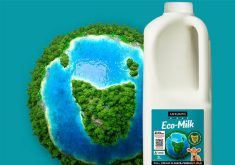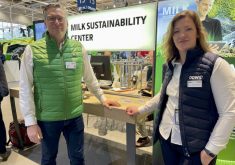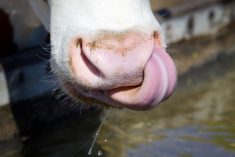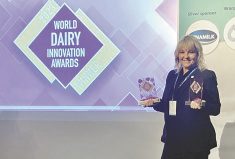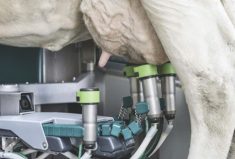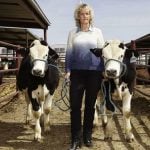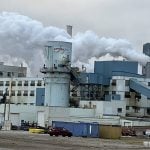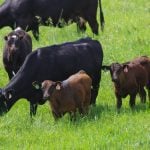Starbucks has joined Farm Credit Canada in its Dairy Sustainability Incentive Program, which offers Canadian dairy farmers interest rate rebates for sustainability initiatives.
Why it matters: Starbucks says milk products are a significant source of the company’s carbon footprint.
The announcement represents entry into the Canadian dairy sector of a company that has already made significant investments in the U.S., United Kingdom, New Zealand and China based initiatives aimed at helping dairy farmers decrease their carbon footprint.
Read Also
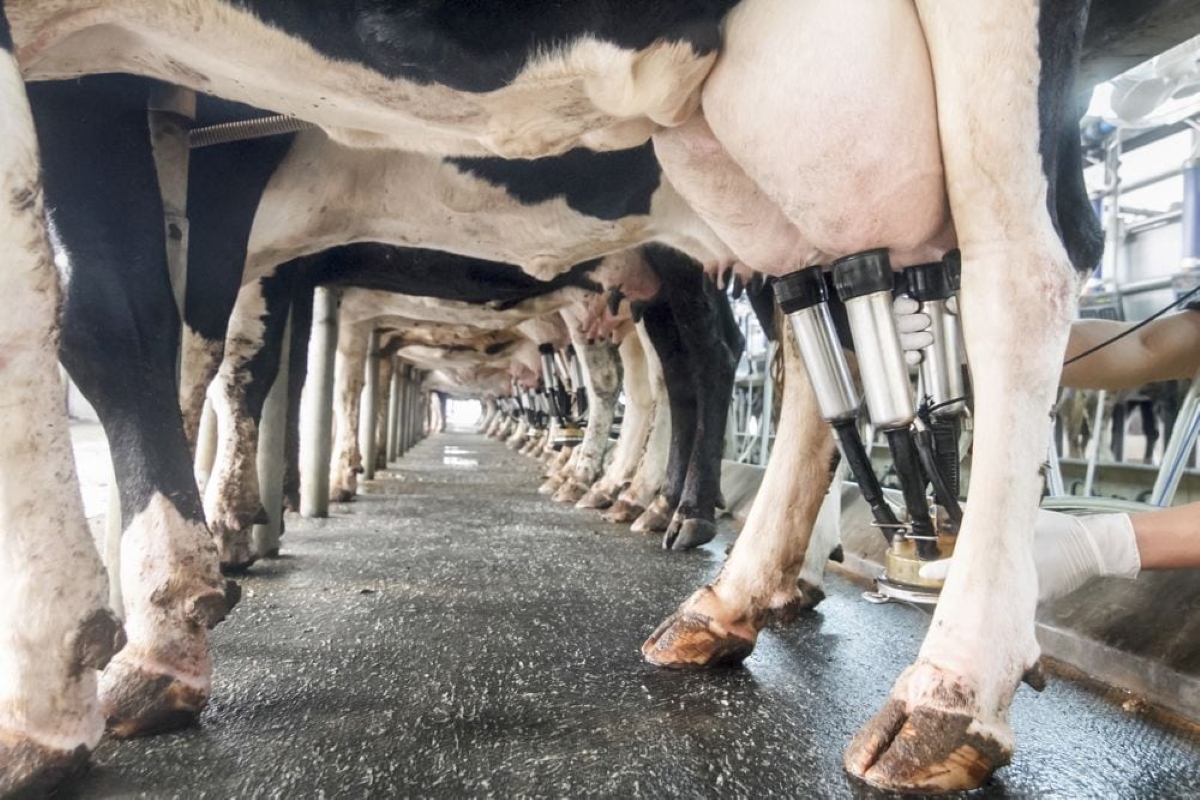
Farm gate milk price to rise in 2026
The Canadian Dairy Commission will raise its farm gate milk price by 2.3255 per cent in February, the Crown corporation announced on Friday.
The 2024 application period began May 21, with Starbucks joining the program as part of a recently announced $500,000 commitment “to support dairy sustainability-focused projects throughout 2024, rewarding the continued efforts of Canadian dairy farmers on the path to net zero (carbon emissions).”
Starbucks will fund over-and-above incentives for program participants deemed to be among the “top achieving” and “most improved” according to the program’s parameters. FCC launched its dairy version in spring 2023, the third in a list of six Sustainability Incentive Programs available to farmers with FCC loans.
Curtis Grainger, FCC director of sustainability programs, said all programs are unique because they weren’t created by FCC. Instead, “we didn’t think it was necessary to re-invent the wheel” and chose to partner with programs already operating within Canadian agriculture. FCC does the bulk of administration and industry stakeholders contribute sector-specific knowledge and some other duties.
Along with the Dairy Sustainability Incentive Program, there is one for beef producers in cooperation with the Canadian Roundtable for Sustainable Beef; one in cooperation with Cargill RegenConnect for Cargill customers that adopt regenerative agriculture practices; one in cooperation with Ducks Unlimited Canada and PepsiCo for participation in DUC’s Marginal Areas Program; one in cooperation with Fertilizer Canada for participants in that organization’s 4R Nutrient Stewardship Program; and one in cooperation with McCain for potato growers who participate in that company’s Regenerative Agriculture Framework.
For dairy, FCC jumped on board with Dairy Farmers of Canada, which had already collaborated with genetics and farm management solutions provider Lactanet to create a checklist of parameters and practices that dairy farmers should target to hasten their voyage to net-zero status. For the program’s first year in 2023, the lending agency was the sole financial backer, offering up to $2,000 to applicants who met the compliance threshold. In all cases, financial incentives are only available to FCC customers.
According to Grainger, the form of support provided dictates that participants must have loans with FCC. In the dairy program, a 0.5 per cent rebate is available on interest payments for lending up to $400,000. For 2024, successful applicants could receive $1,000 more, thanks to Starbucks. Last year, 148 dairy farmers across Canada received an average of $1,900 in interest rate rebates from the program.
On its website, Starbucks says since it introduced its first beverage, the cafè latte, “cow’s milk has been an integral ingredient for the company.” But at the same time, “dairy is the biggest contributor to Starbucks’ carbon footprint and the second highest contributor to water withdrawal.”
Ross Anderson, Starbucks Canada’s Head of Social Impact, Sustainability and Public Policy, said the corporation aims “to cut our carbon, water and waste footprints in half by 2030” – a goal which requires the company to “innovate and work together with our key suppliers, including the dairy industry, to source dairy responsibly and sustainably.”
In pursuing that goal, in 2020 the company committed US$10 million to the U.S. Dairy Net Zero Initiative, followed by the launch in 2021 of a pilot project with California’s Alliance Dairy to fund technologies such as evaporative nutrient recovery.
Starbucks also sources milk in the U.S. from cows fed Agolin Ruminant, “a plant-based feed additive certified by the Carbon Trust to improve feed efficiency and reduce enteric methane, ultimately reducing dairy’s carbon footprint.”
Grainger credits DFC for making Canada a next logical step for Starbucks to expand its dairy sustainability investments. He says the national umbrella group was ahead of the public policy curve when it created a framework for farmers to work toward carbon neutrality. “When the farm sectors create programs like that, it makes it a lot easier for (corporations) to set up these partnerships because they can identify what they’re trying to achieve” through their investments.
Successful applicants from 2023 must re-apply for the 2024 program to confirm their eligibility, and Grainger expects additional farms will meet the criteria for sustainability incentives.
“The whole point of the program is to increase adaptation of these practices,” he said. “But we also want to make sure those things are maintained on the farms where they’ve been put in place.”




